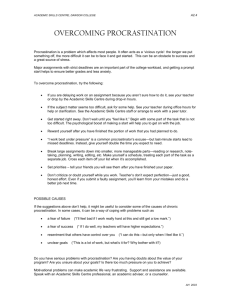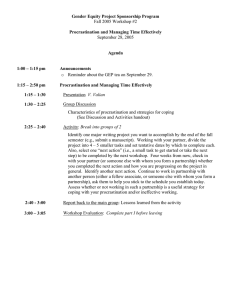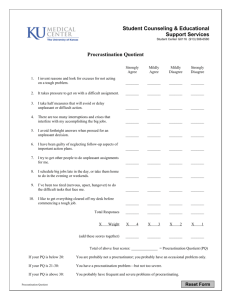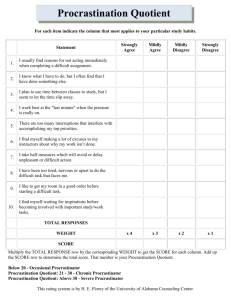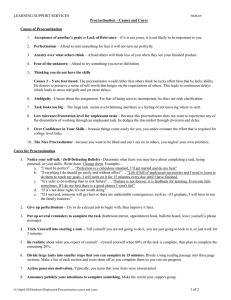Leadership Quote Leadership Lesson "If and When were planted,
advertisement
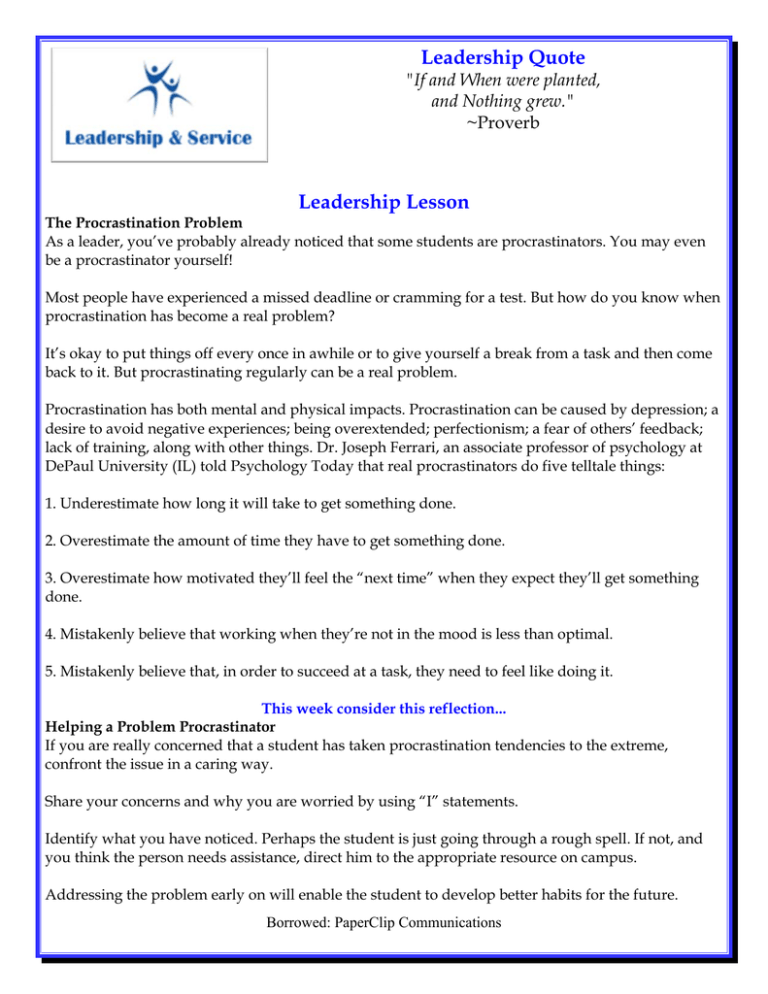
Leadership Quote "If and When were planted, and Nothing grew." ~Proverb Leadership Lesson The Procrastination Problem As a leader, you’ve probably already noticed that some students are procrastinators. You may even be a procrastinator yourself! Most people have experienced a missed deadline or cramming for a test. But how do you know when procrastination has become a real problem? It’s okay to put things off every once in awhile or to give yourself a break from a task and then come back to it. But procrastinating regularly can be a real problem. Procrastination has both mental and physical impacts. Procrastination can be caused by depression; a desire to avoid negative experiences; being overextended; perfectionism; a fear of others’ feedback; lack of training, along with other things. Dr. Joseph Ferrari, an associate professor of psychology at DePaul University (IL) told Psychology Today that real procrastinators do five telltale things: 1. Underestimate how long it will take to get something done. 2. Overestimate the amount of time they have to get something done. 3. Overestimate how motivated they’ll feel the “next time” when they expect they’ll get something done. 4. Mistakenly believe that working when they’re not in the mood is less than optimal. 5. Mistakenly believe that, in order to succeed at a task, they need to feel like doing it. This week consider this reflection... Helping a Problem Procrastinator If you are really concerned that a student has taken procrastination tendencies to the extreme, confront the issue in a caring way. Share your concerns and why you are worried by using “I” statements. Identify what you have noticed. Perhaps the student is just going through a rough spell. If not, and you think the person needs assistance, direct him to the appropriate resource on campus. Addressing the problem early on will enable the student to develop better habits for the future. Borrowed: PaperClip Communications Borrowed: PaperClip Communications


